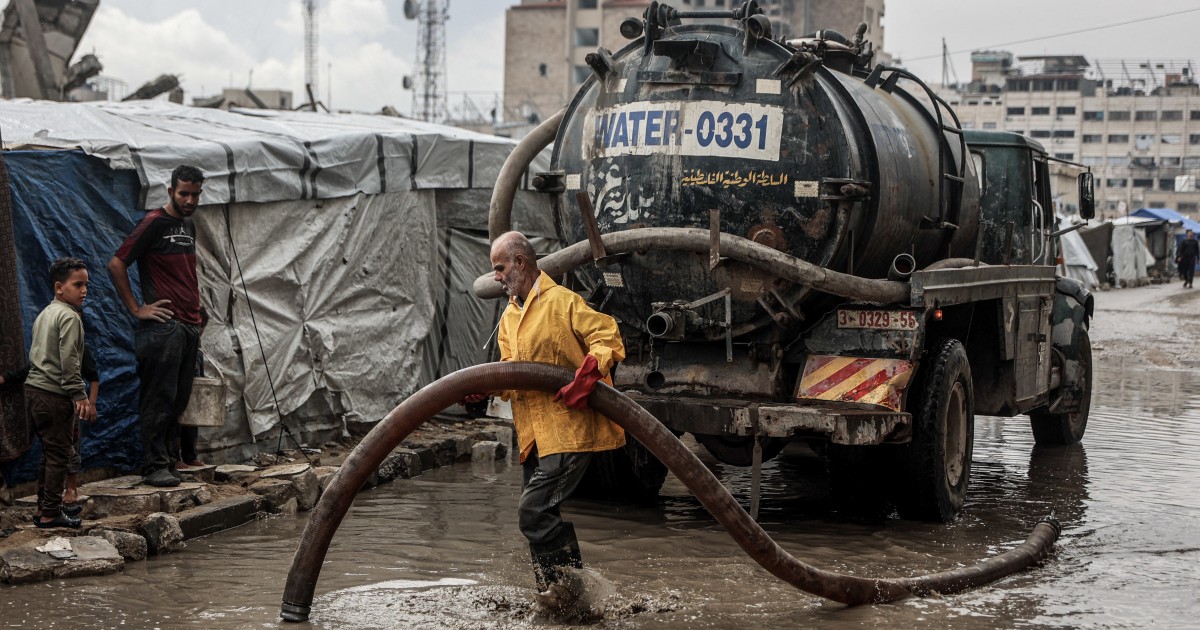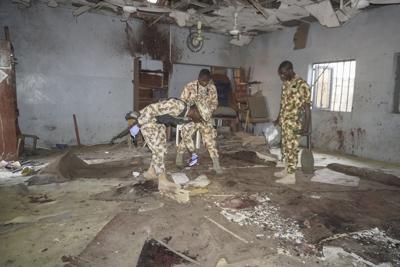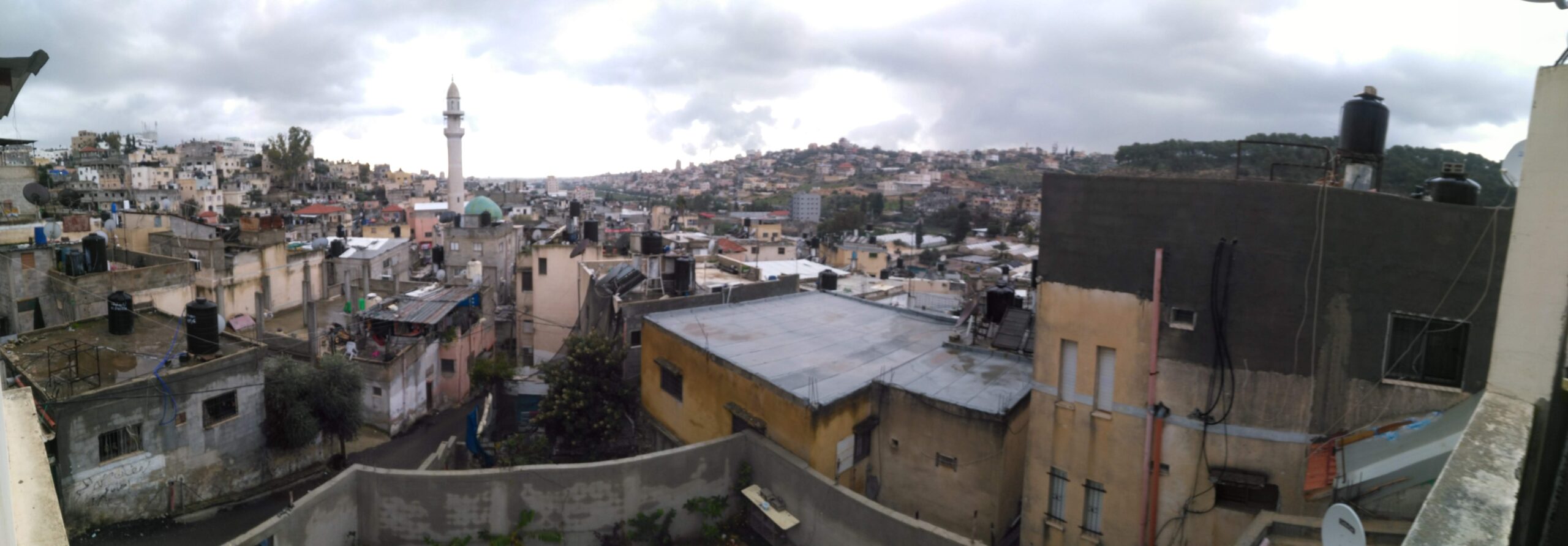Heavy rainfall inundated camps across Gaza on Saturday, exacerbating the dire conditions faced by displaced Palestinians. The torrential downpour transformed roads into rivers, soaking families in makeshift tents and forcing residents to remove dirty water that pooled around their belongings. This deluge coincides with a cold snap, amplifying humanitarian concerns for the enclave’s two million residents.
In a camp in Gaza City, Sana Abu Harad, 38, expressed her despair as she looked at her shivering child lying on a sodden mattress. “Everything is underwater,” she told NBC News. “Why must this little child sleep in floodwater? I struggled so much just to get this tent, and now nothing protects us. Where will I live with my children now?”
The flooding crisis has been intensified by the destruction of essential water and sewage infrastructure due to two years of Israeli strikes. Over 1.5 million people in Gaza urgently need emergency shelter assistance, according to the International Organization for Migration (IOM). Mahmoud Basal, a spokesman for Gaza’s Civil Defense agency, characterized the situation as a “true catastrophe.” He warned that the mixture of rainwater and sewage is creating an environmental disaster that risks public health. “There is no sewage system, no rainwater drainage system, and no water reservoirs; all of them have been destroyed,” he noted.
Compounding the humanitarian crisis, the United Nations reported last week that Israel has rejected over 100 requests for the entry of essential relief materials, including blankets, winter clothing, and tools crucial for maintaining water, sanitation, and hygiene services. Farhan Haq, Deputy U.N. Spokesperson, highlighted that these restrictions continue to hinder humanitarian efforts.
In response, COGAT, the Israeli body responsible for coordinating humanitarian aid in Gaza, stated via social media that “hundreds of trucks carrying food, water, fuel, gas, medicines, medical equipment, tents, and shelter supplies enter the Gaza Strip every day.”
On the international front, the U.N. Security Council is set to vote on a U.S. proposal for a U.N. mandate for an international stabilization force in Gaza. This proposal has faced opposition from Russia, China, and several Arab nations. Tensions have further escalated in Israel regarding a joint statement supporting the resolution, which advocates for Palestinian self-determination and statehood. This mention has provoked backlash from far-right members of Prime Minister Benjamin Netanyahu‘s Cabinet, particularly Itamar Ben-Gvir and Bezalel Smotrich, who urged Netanyahu to clarify Israel’s stance against any form of Palestinian state.
Netanyahu, reliant on support from ultranationalists to maintain his majority, reaffirmed at a government meeting that Israel’s opposition to a Palestinian state remains unchanged. “I don’t need reinforcements and tweets and lectures from anyone,” he asserted.
As negotiations for the next phase of the ceasefire, Hamas’ disarmament, and the return of three Israeli hostages remain stalled, the humanitarian situation in Gaza continues to deteriorate. With the storm battering the tents of those displaced, the hope for improvement seems increasingly elusive.
Ma’in Albuhteiti, 50, described the harrowing experience of sleeping with seven of his children in a tent when the rain began. “We were completely flooded; we couldn’t move,” he said. “The situation is extremely tragic, and all the rain is pouring on us.” Without proper shelter, he lamented the devastating reality faced by families like his.







